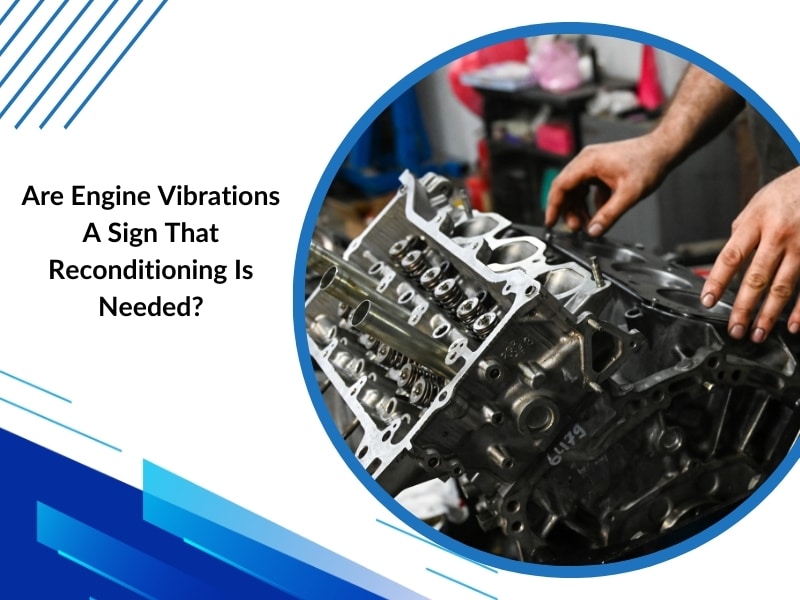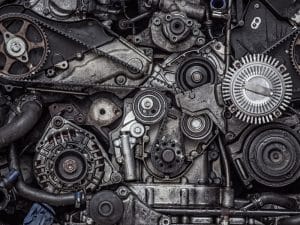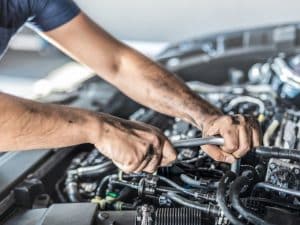Engine vibrations can signal underlying issues that affect your vehicle’s performance and engine longevity. For Hyundai iLoad van owners in Victoria, identifying the cause of vibrations and knowing when to seek professional reconditioning is key to maintaining your vehicle’s health. This article will explore the causes of engine vibrations, their impact on performance when reconditioning is necessary, and why reconditioning is often a better option than other repair methods.
What causes engine vibrations in your vehicle?
Engine vibrations can arise from various factors, ranging from minor to severe. Common causes include imbalanced engine components, such as the crankshaft or flywheel, which can lead to vibrations over time. Worn-out engine mounts, designed to keep the engine in place, may also allow movement and cause shaking. Fuel system issues, like problems with injectors, the fuel pump, or the filter, can disrupt engine operation. Misfiring cylinders and old or faulty spark plugs are other potential culprits, both contributing to motor shaking.
How do engine vibrations affect the performance of your vehicle?
Engine shaking can significantly impact your vehicle’s performance. Here are some ways they affect your Hyundai iLoad:
- Reduced engine efficiency: Vibrations cause the motor to work harder, increasing fuel consumption.
- Decreased driving comfort: Continuous shaking can make driving uncomfortable, especially on long trips.
- Increased wear and tear: Extra strain on engine components accelerates wear, leading to more frequent repairs.
- Potential engine damage: Persistent shaking can cause damage, leading to costly repairs or engine failure.
- Loss of power: Excessive shaking may affect the engine’s ability to deliver power, impacting acceleration and performance.
Are engine vibrations a common sign of wear and tear?
Yes, engine shaking is often a common symptom of wear and tear, especially as a vehicle ages. Here are some factors that contribute to shaking due to wear and tear:
- Age of the engine: Older motors tend to have more worn-out parts that can lead to imbalances and shaking.
- Frequent short trips: Taking your vehicle on short trips can cause the engine to work harder than it would on longer journeys, leading to accelerated wear and potential shaking.
- Lack of maintenance: Failure to regularly maintain the engine can cause parts to degrade and lead to shaking.
- Accumulative damage: Over time, components such as belts, hoses, and engine gaskets wear out, causing the engine to vibrate.
Can vibrations be linked to faulty engine components?
Yes, faulty engine components are often responsible for excessive shaking. These parts may be damaged or worn out and require attention to prevent further issues. Here are some components linked to shaking:
- Faulty engine mounts: Loose or damaged mounts may fail to secure the motor, causing shaking.
- Cracked or worn crankshaft pulley: An uneven pulley can cause motor vibration.
- Worn or loose belts: Improperly tensioned belts can slip or misalign, causing shaking.
- Damaged flywheel: A worn flywheel can create imbalance and shaking.
- Fuel system problems: Fuel injectors, pumps, or filters can cause misfires, leading to shaking.
When should engine vibrations prompt you to consider reconditioning?
When shaking becomes noticeable, it’s essential to assess whether engine rebuilding is necessary. Here are some signs to look out for:
- Persistent shaking: If shaking persists despite regular maintenance, rebuilding may be needed to restore motor performance.
- Loss of engine power: A decrease in engine power or acceleration, along with shaking, may signal the need for rebuilding.
- Increased fuel consumption: Higher fuel consumption combined with shaking can indicate motor inefficiency, suggesting a need for rebuilding.
- Engine warning lights: If the check engine light appears to be vibrating, professional attention is required.
How can engine reconditioning fix the issue of engine shaking?
Engine rebuilding can address shaking by restoring the engine’s performance and improving the efficiency of its components, which are among the many benefits of reconditioned engines. Here’s how rebuilding can fix vibration-related issues:
- Replacement of worn components: Engine rebuilding involves replacing or refurbishing worn-out components, such as pistons, valves, and gaskets, to restore the engine’s smooth operation.
- Balancing engine parts: Engine rebuilding includes balancing key engine components to prevent imbalances that cause sh.
- Cleaning and de-carbonising: Rebuilding removes carbon buildup and other debris that can affect the engine’s performance and reduce shaking.
- Optimising engine performance: Engine rebuilding optimises the engine’s timing, fuel injection, and exhaust systems, ensuring that all parts work in harmony and reduce shaking.
Can regular maintenance prevent engine shaking in the future?
Regular maintenance plays a vital role in preventing engine shaking. Here are some tips to help avoid future shaking:
- Routine inspections: Regular motor inspections can identify potential issues before they cause shaking.
- Changing the oil: regular oil changes ensure that the engine remains well-lubricated, reducing wear and tear on moving parts.
- Replace worn components: Replacing parts such as spark plugs, filters, and belts before they wear out can help maintain smooth engine operation.
- Engine tuning: Regular tuning ensures that all components are working efficiently, reducing the likelihood of shaking.
What are the benefits of reconditioning your engine over other solutions?
Reconditioning offers several advantages over other repair methods. Here are some reasons why rebuilding is often the best solution for engine shaking:
- Cost-effective: Engine rebuilding is typically more affordable than replacing the entire engine.
- Restores engine performance: Reconditioning restores the engine’s performance, ensuring it runs smoothly and efficiently.
- Sustainability: Reconditioning is an environmentally friendly option, as it involves reusing existing engine parts rather than discarding them.
- Extended engine life: Reconditioning can extend the life of your engine and delay the need for a complete replacement by addressing issues and restoring the engine.
By investing in high-quality engine services like reconditioning, you can effectively fix engine shaking and restore your engine’s optimal performance.
Restore your engine and eliminate vibrations
Engine vibrations can be a sign of underlying issues that require attention. Whether worn components or a misbalanced engine causes it, it’s essential to address the problem before it causes further damage. For Hyundai iLoad owners in Victoria, engine rebuilding offers a practical solution to eliminate shaking and restore your engine’s performance.
At Hyundai iLoad Engine Specialist, we offer high-quality reconditioning services, ensuring your engine runs smoothly and efficiently. With a team of highly trained experts, we guarantee the best prices on reconditioned engines and fast turnaround times. If your vehicle is experiencing engine vibrations, don’t wait—Contact Hyundai iLoad Engine Specialist today to learn how we can help restore your Hyundai iLoad engine to its best condition.



